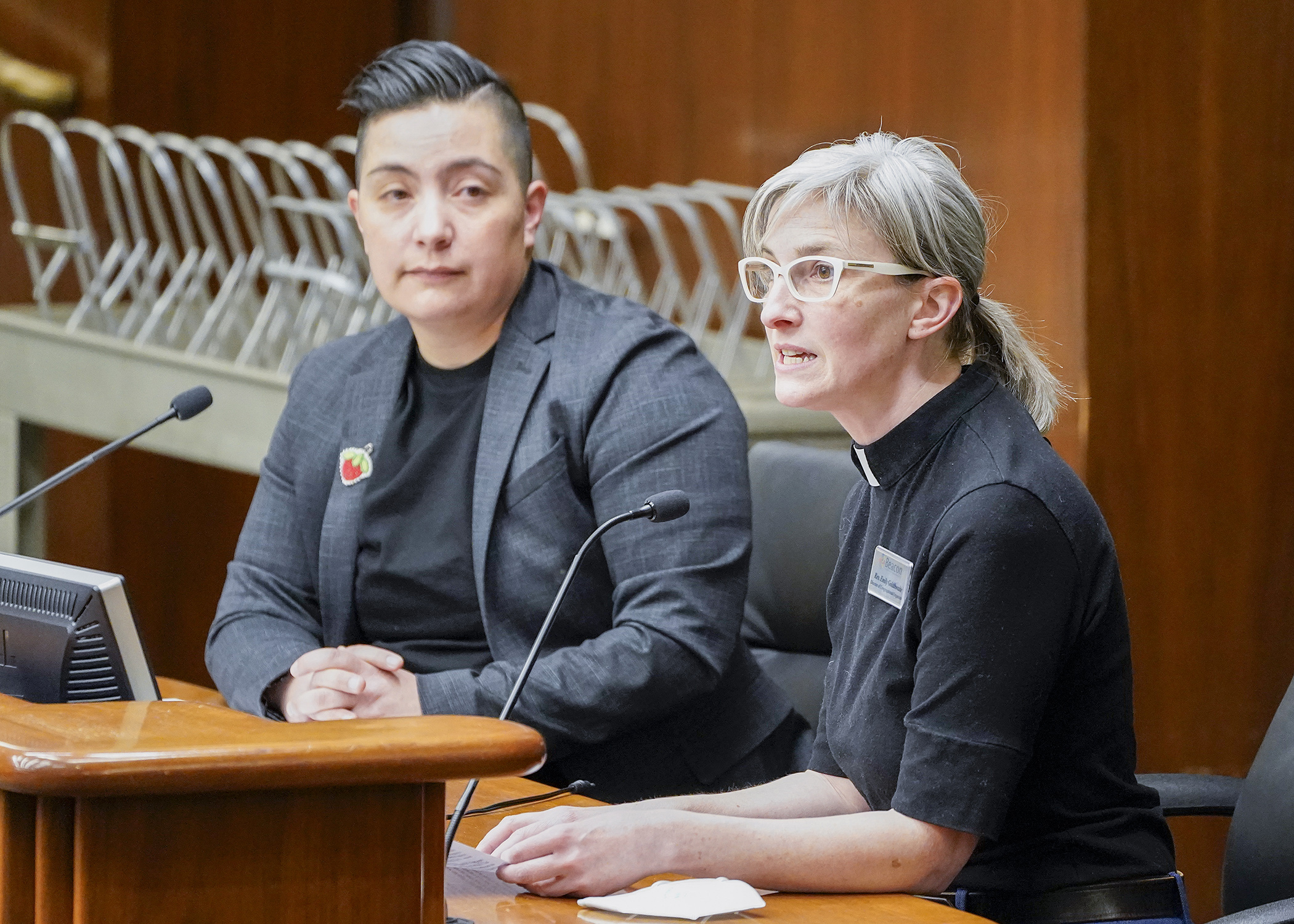Cities could be compelled to allow apartment buildings in commercial zones

Should the state tell cities how they must permit certain kinds of housing developments within their own boundaries?
Sponsored by Rep. Alicia “Liish” Kozlowski (DFL-Duluth), HF4010, as amended, would compel cities to allow multifamily residential buildings of at least 13 units on commercially zoned land beginning Jan. 1, 2025.
The House Housing Finance and Policy Committee approved the bill Wednesday on a party-line vote and referred it to the House State and Local Government Finance and Policy Committee.
Under the bill, at least 20% of the apartment units would have to be reserved for households whose incomes do not exceed 50% of the statewide or area median income, and at least 40% for households whose incomes do not exceed 60% of the statewide or area median income.
The bill is one means of addressing the housing shortage in Minnesota, Kozlowski said referencing a Wilder Foundation report published Wednesday that fond housing instability is worse this year and more renters are cost-burdened than they were last year, including senior citizens and children.
“Today, there are 114,131 households without an affordable and available home, and on any given night over 7,000 children and their families are struggling,” Kozlowski said. “The data is very clear that market conditions like the cost and availability of housing explain homelessness in our community.”
Kozlowski said local zoning codes severely restrict where multi-family housing buildings can be constructed.
“We believe our current zoning practice is part of the housing crisis and this bill you are considering today is part of the solution,” said the Rev. Emily Goldthwaite, director of congregational organizing at Beacon Interfaith Housing Collaborative.
Goldthwaite said racial and class biases push city councils and planning commissions to veer from their own comprehensive plans.
A number of individuals said the bill usurps the authority of cities.
Allowing development in commercial zones is problematic due to the lack of parks and sidewalks and the presence of high traffic volumes, said Jill Hutmacher, Eagan community development director.
Ania McDonnell, government relations specialist for Metro Cities, said the bill’s limitations on the number of parking spaces at multi-family housing buildings is problematic.
Related Articles
Search Session Daily
Advanced Search OptionsPriority Dailies
Speaker Emerita Melissa Hortman, husband killed in attack
By HPIS Staff House Speaker Emerita Melissa Hortman (DFL-Brooklyn Park) and her husband, Mark, were fatally shot in their home early Saturday morning.
Gov. Tim Walz announced the news dur...
House Speaker Emerita Melissa Hortman (DFL-Brooklyn Park) and her husband, Mark, were fatally shot in their home early Saturday morning.
Gov. Tim Walz announced the news dur...
Lawmakers deliver budget bills to governor's desk in one-day special session
By Mike Cook About that talk of needing all 21 hours left in a legislative day to complete a special session?
House members were more than up to the challenge Monday. Beginning at 10 a.m...
About that talk of needing all 21 hours left in a legislative day to complete a special session?
House members were more than up to the challenge Monday. Beginning at 10 a.m...